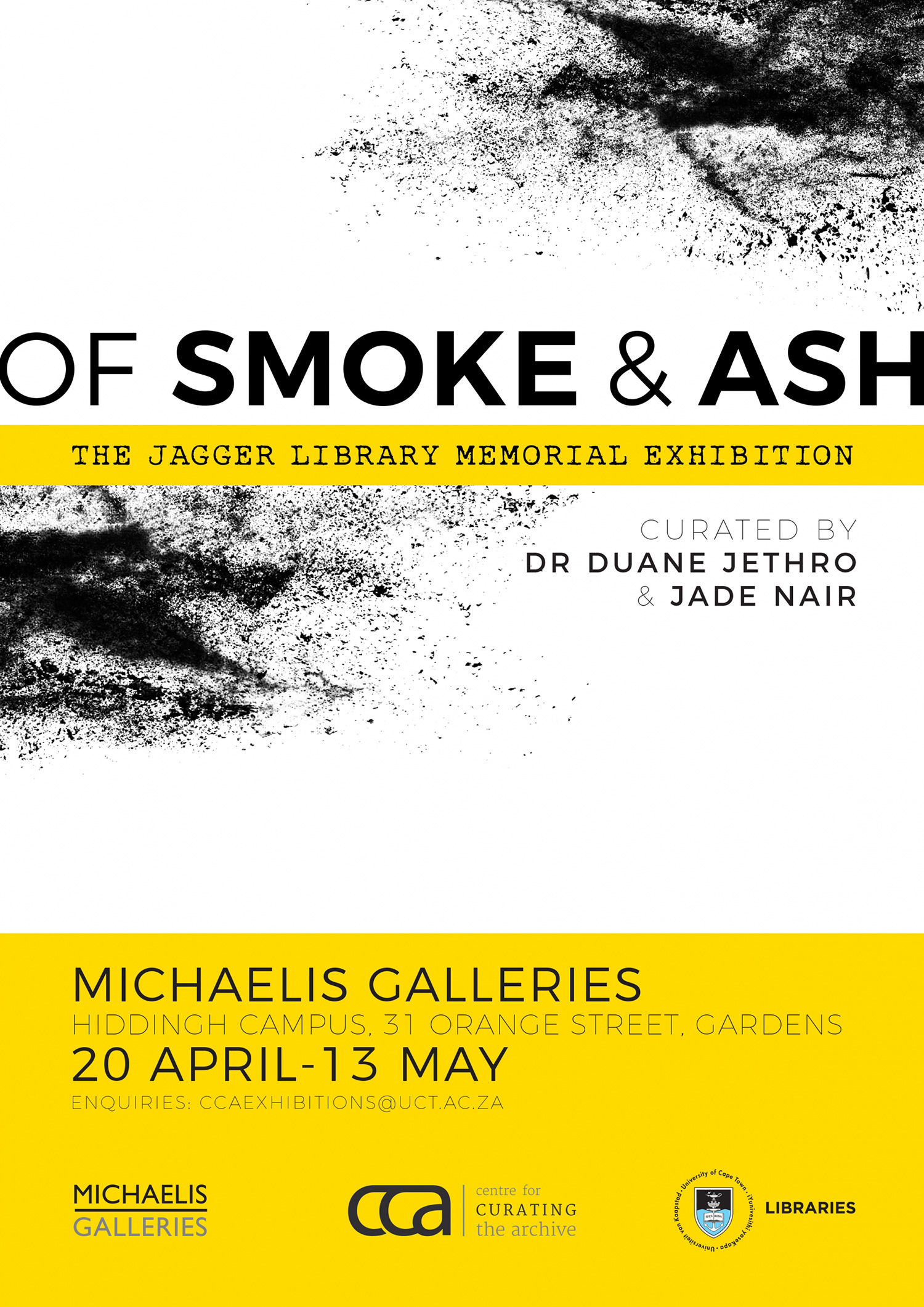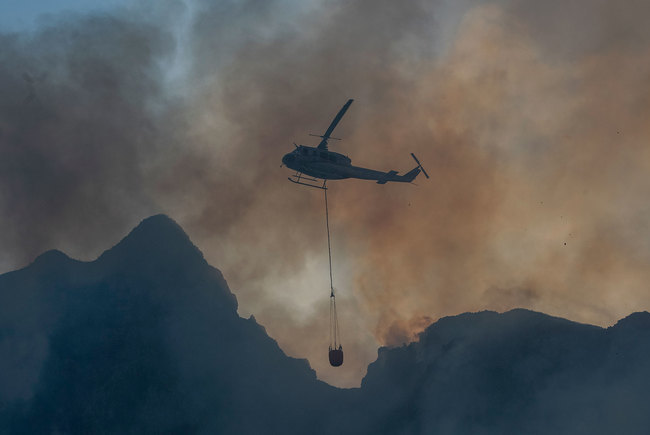UCT fire: Emotional effects linger longer
11 May 2021 | Story Niémah Davids. Photo Jean Claude Nsabimana. Read time 4 min.
The University of Cape Town’s (UCT) Student Wellness Service (SWS) has seen an uptick in the number of students who require psychosocial support following the large campus fire and subsequent evacuation three weeks ago.
Dr Memory Muturiki, the director of SWS told UCT News that for some students it’s not been “business as usual”. Instead, a few have been struggling to navigate their emotions and effectively deal with the events that unfolded on Sunday, 18 April. Most students returned to residences on Thursday, 22 April, after spending four days at temporary accommodation sites across the city.
“It’s been a very difficult few weeks for our students, and many are still experiencing a range of anxieties. But we are committed to helping them through this difficult time,” Dr Muturiki said.
Post-traumatic stress disorder
According to Muturiki, some students’ symptoms clearly indicate signs of post-traumatic stress disorder (PTSD).
She said some have reported that they are experiencing anxiety and panic attacks, and others have become withdrawn, isolating themselves from their peers. Some students, she added, are also experiencing academic stress; the anxiety associated with catching up with their academic programmes following the week-long suspension has been “a heavy load to bear”.
“The tell-tale signs that go hand-in-hand with PTSD include finding it difficult to sleep, social phobia, panic disorder, avoidant behaviour and substance abuse.”
“This is trauma speaking. It’s the trauma that comes with being displaced and not knowing whether your personal belongings will be lost or not. It’s an awful experience,” she said.
Muturiki explained that PTSD presents itself in a number of ways. Typically, patients present with symptoms a few weeks after a traumatic incident. However, she said that in rare instances, some patients can go a long time before a trigger event sets in and they begin to experience their first PTSD symptoms. The tell-tale signs that go hand-in-hand with PTSD include finding it difficult to sleep, social phobia, panic disorder, avoidant behaviour and substance abuse.
Interestingly, Muturiki said that not everyone who has been exposed to trauma will develop PTSD. Those with pre-existing mental health illnesses are said to be more at risk, so no symptoms should not be ignored.
“We are here to hold our students’ hands and to help them through this time.”
SWS peer counsellor and social worker Mary Clark said: “Some students I supported had pre-existing mental health problems. It appears that the trauma of the fire triggered [previously neglected] psychological issues, such as bereavement and loss. We are here to hold our students’ hands and to help them through this time.”
24-hour mental health support
Muturiki said that SWS has been facilitating numerous workshops that focus on how best to cope following a traumatic incident, and debriefing sessions are still underway for those who need it. She added that the telephonic counselling service has also increased its hours and counsellors are readily available to support students.
She encouraged students to make use of the support structures the university has in place. She reiterated that SWS has a highly skilled multidisciplinary team of psychiatric nurses, social workers, psychologists and doctors who are available to assist at any time.
“PTSD can affect anyone who has experienced trauma, and seeking help is not a sign of weakness.”
“My advice to students who are struggling would be to not delay seeking professional help and speak to someone as early as possible. It’s very important that they are assisted through all of this. PTSD can affect anyone who has experienced trauma, and seeking help is not a sign of weakness,” Muturiki concluded.
 This work is licensed under a Creative Commons Attribution-NoDerivatives 4.0 International License.
This work is licensed under a Creative Commons Attribution-NoDerivatives 4.0 International License.
Please view the republishing articles page for more information.
#UCTFire – one year later
The Centre for Curating the Archive, in association with Michaelis Galleries (UCT) and UCT Libraries will stage a memorial exhibition marking the one-year anniversary of the tragic Jagger Library fire at the Michaelis Galleries. The exhibition will open to the public on Wednesday, 20 April 2022.
Campus communications
Updates on Campus Fire
Campus communications
News and videos
Memories of Jagger Library – stories from the UCT community
Content submitted by members of the UCT community has been published with little to no editorial intervention from UCT News.
#UCTFire – stories from the UCT community
Content submitted by members of the UCT community has been published with little to no editorial intervention from UCT News.
In an email to UCT students, Vice-Chancellor Professor Mamokgethi Phakeng said:
“Thank you for your patience as we seek ways to return to full academic activity at the University of Cape Town under COVID-19 regulations. Our first priority is to ensure the health and safety of everyone who needs to return to campus buildings.”
UCT is deeply grateful to all the donors who supplied food and other essential items for our students, and to everyone who has so generously offered other forms of support and assistance.
Everyone who would like to support the #UCTFire emergency relief fund is urged to please make financial donations to UCT through the UCT Alumni Ways to Give web page.
Donations can also be made by EFT using the details below:
Account name: UCT Donations Account
Bank: Standard Bank of South Africa
Branch code: Rondebosch Branch, 025009
Account number: 07 152 2387
Swift code: SBZAZAJJ
Please include your donor name if you so wish, as well as the reference for your donation, e.g. Name Surname, #UCTFire.
Messages of support





















































